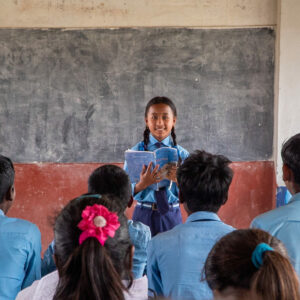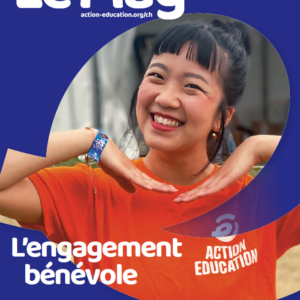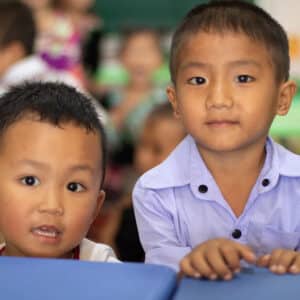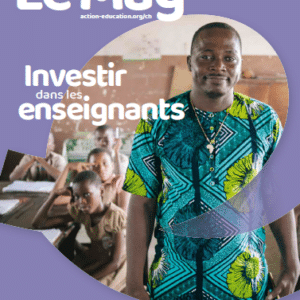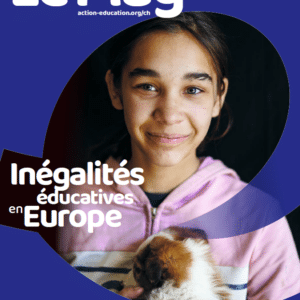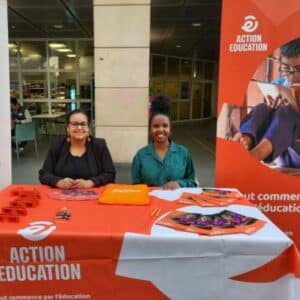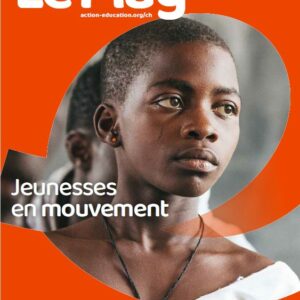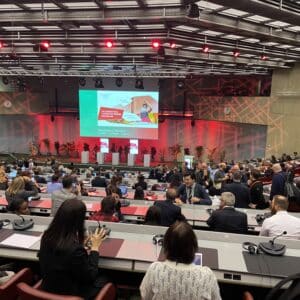Photo credit: Christine Redmond
COVID-19 has turned the world upside down, claiming thousands of victims, destroying millions of jobs and bringing the world as we knew it to a halt. But beyond the human, social and financial consequences that weigh on our daily lives, the crisis is revealing itself to be more insidious than it seemed, gradually revealing silent disasters that are eating away at the world of today and tomorrow. Aide et Action is sounding the alarm on the occasion of the International Education Day (24 January).
The Covid-19 pandemic and its accompanying containment measures confined millions of children and adults for over 21 months. Such long-term social restrictions, however necessary, cannot be without consequences.
An inability to integrate socially and economically
Overnight, 1.6 billion children around the world have been taken out of school. More than 500 million have been excluded from all education and are unlikely to ever catch up on the many learning losses, leaving more than 24 million children at risk of dropping out of school early and being unable to integrate socially and economically into society in the long term.
Poorer mental health
1 in 7 children has been directly affected by containment measures in the more or less long term... For some, almost 3 years after the start of the pandemic, life has still not returned to normal. Their education, recreational activities, family and social relationships have been disrupted. For the youngest, the crisis has created stress, deprived them of basic reference points, tactile and emotional contacts essential to their development. The wearing of masks by adults may cause them to suffer from language delays that are more or less recoverable. For adolescents, those of an age to understand the situation, concern about the pandemic, the risk of contamination, and the loss of jobs and income that could affect their families, have generated feelings of fear, anger and anxiety. An international survey of children and adults in 21 countries conducted by UNICEF and Gallup found that 1 in 5 young people aged 15 to 24 reported feeling depressed or not wanting to do anything because of the pandemic. The pandemic crisis has only worsened the already fragile mental health of many young people. According to a new study, the contribution to economies lost due to mental disorders among young people is estimated at nearly $390 billion per year.
An explosion of violence
The period of confinement, the anxiety of illness, the loss of jobs and income, and the uncertainty of the future have not spared adults. They, too, have faced great stress, which has led to an increase in violence in almost every country in the world. Millions of young girls, condemned to remain in their communities for months on end, have also been exposed to the worst abuses. They were raped, assaulted and harassed. More than 4 million girls in sub-Saharan Africa have been forcibly married during confinement and the number of early marriages, 12 million per year before the pandemic, is expected to soar in the coming years. Violence against women also jumped from 25% to 111% in ten countries in the first months of containment. In India, according to the Indian National Commission for Women, domestic violence is estimated to have increased by 250 % in the country. This is unprecedented.
It all starts with education
Under these conditions, what kind of future can we envisage? How can today's children, deprived of basic school skills, with fragile mental health and exposed to months of the worst violence, become tomorrow's enlightened adults, capable of building a more just and sustainable world? And today we see only the most acute signs, the most violent and obvious crises, but these are only the emerging parts of the icebergs towards which the world is heading and on which it will inevitably stumble. Others will appear, perhaps more serious. Unless we act now. At Aide et Action we believe that everything starts with education. School is not only a place to learn knowledge. It is above all a place of resilience for all young people. It offers a haven of peace, a benevolent space supervised by childcare professionals, where the most traumatised children can regain a sense of normality and compensate for the psychological and social difficulties experienced outside school. It is therefore imperative that all schools be reopened as soon as possible, in compliance with health conditions, and that teachers be trained so that they are able to take charge of the young people who have suffered the most from the confinement. Only if everyone has access to quality education can we build a better world tomorrow.



